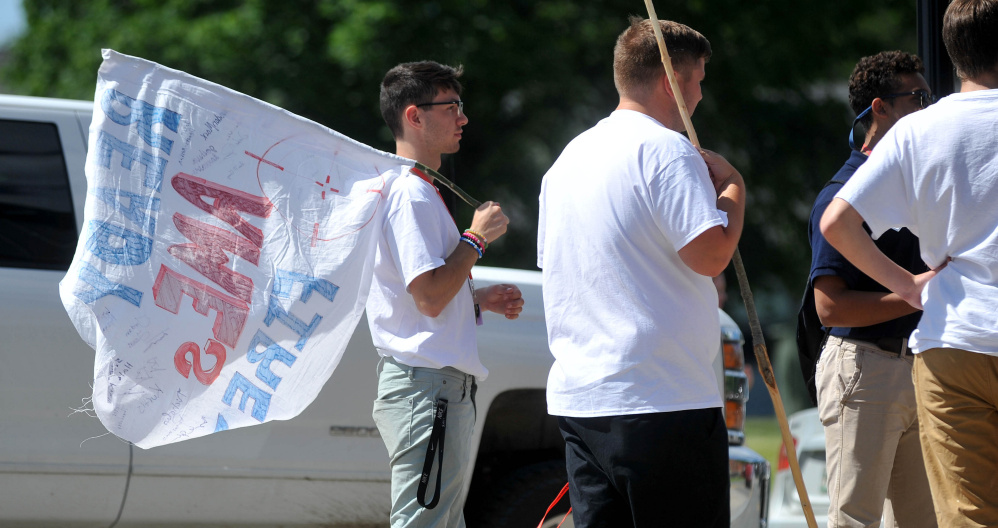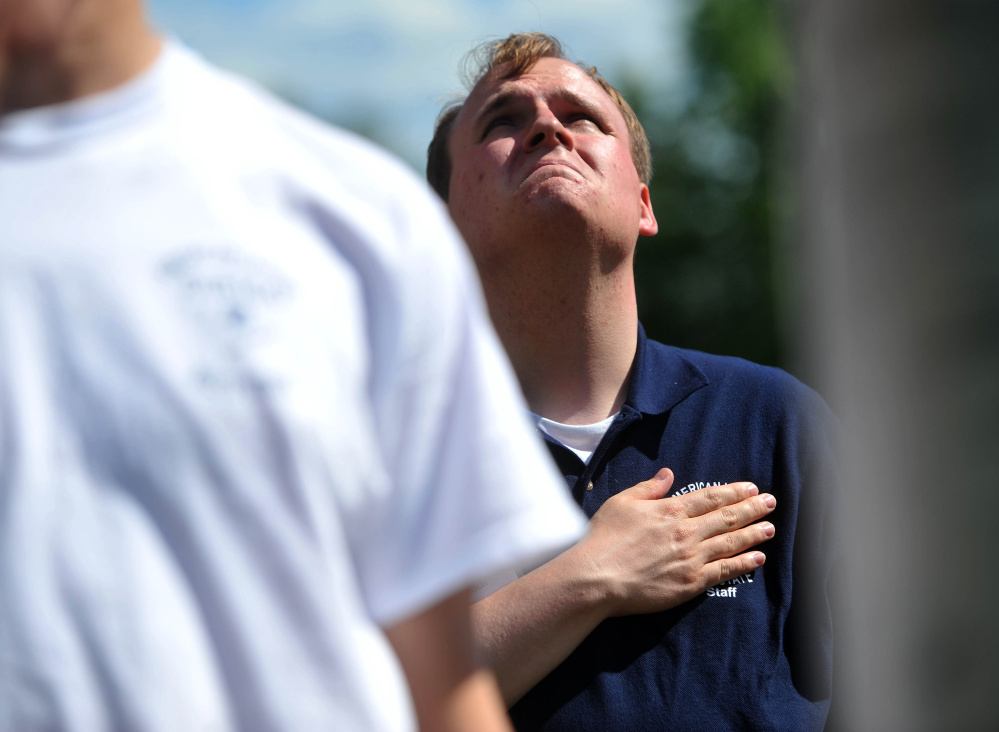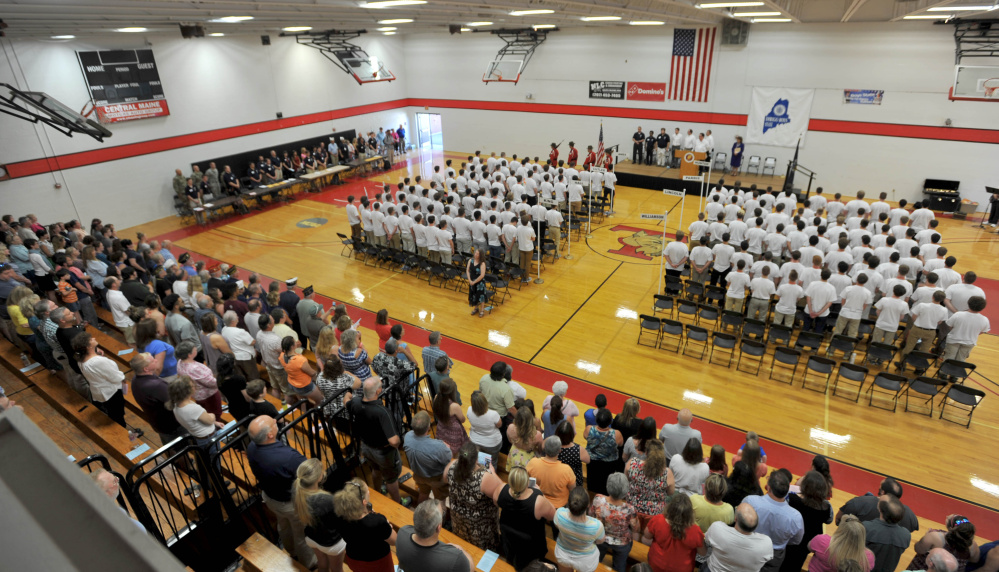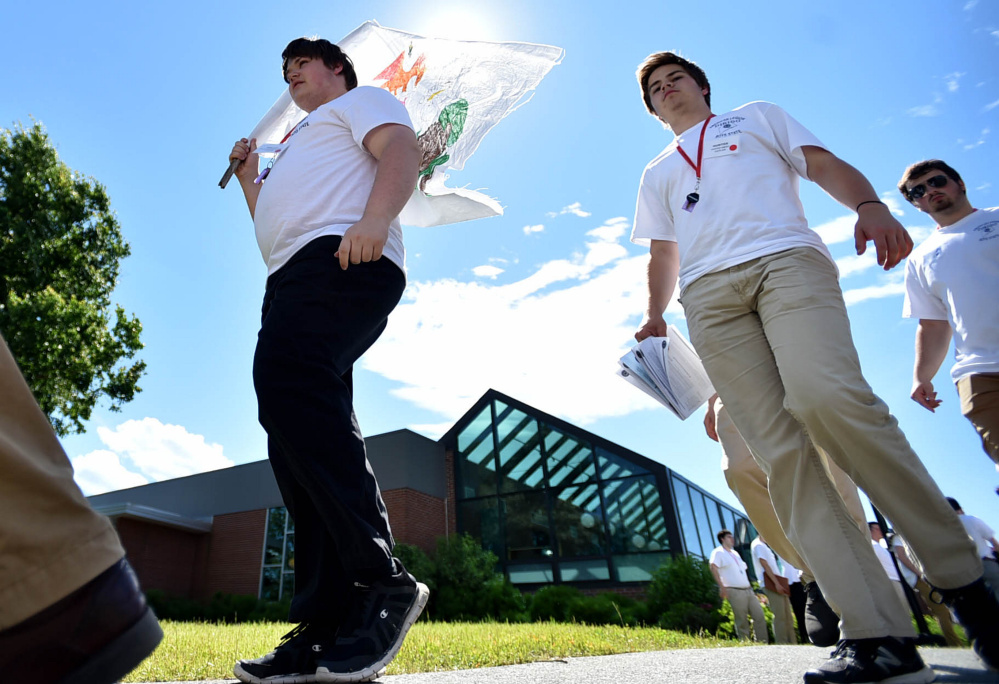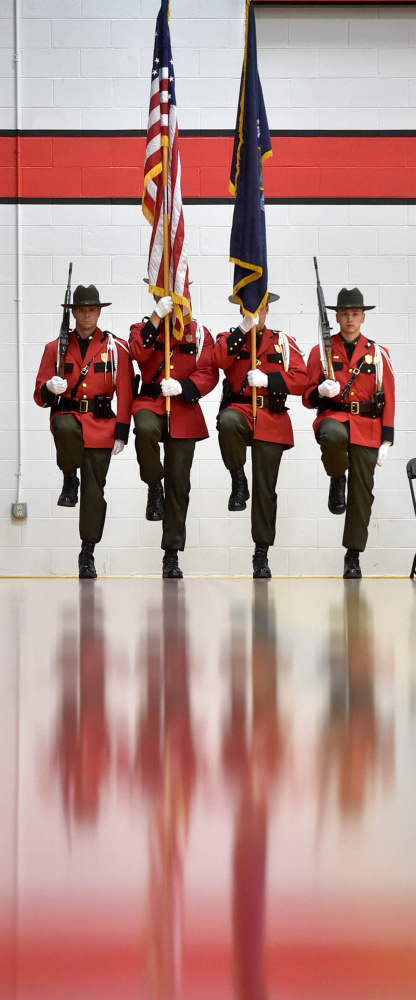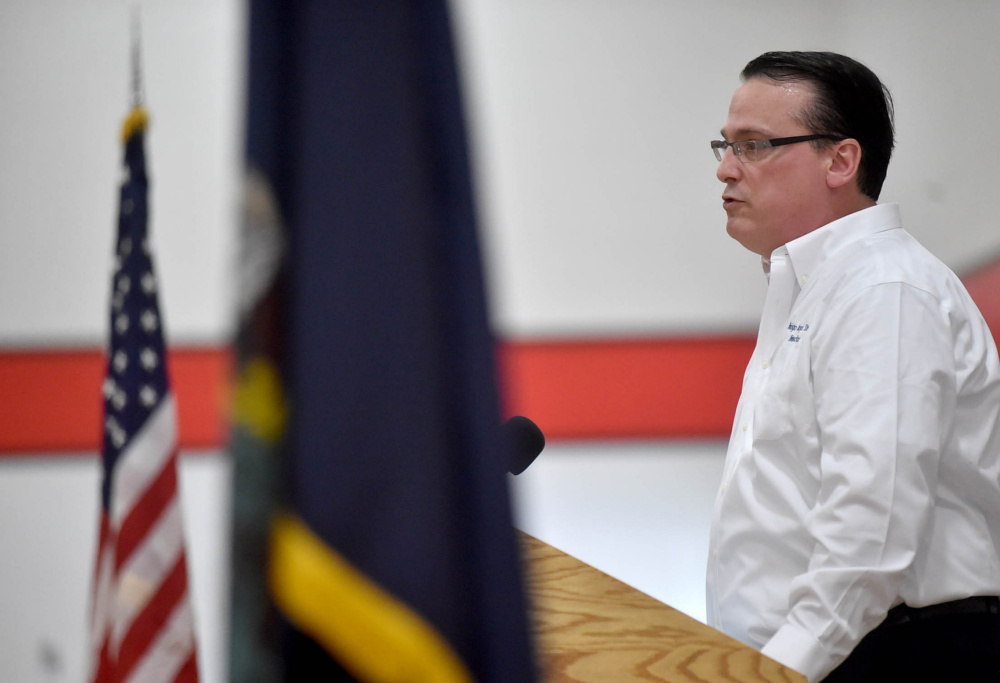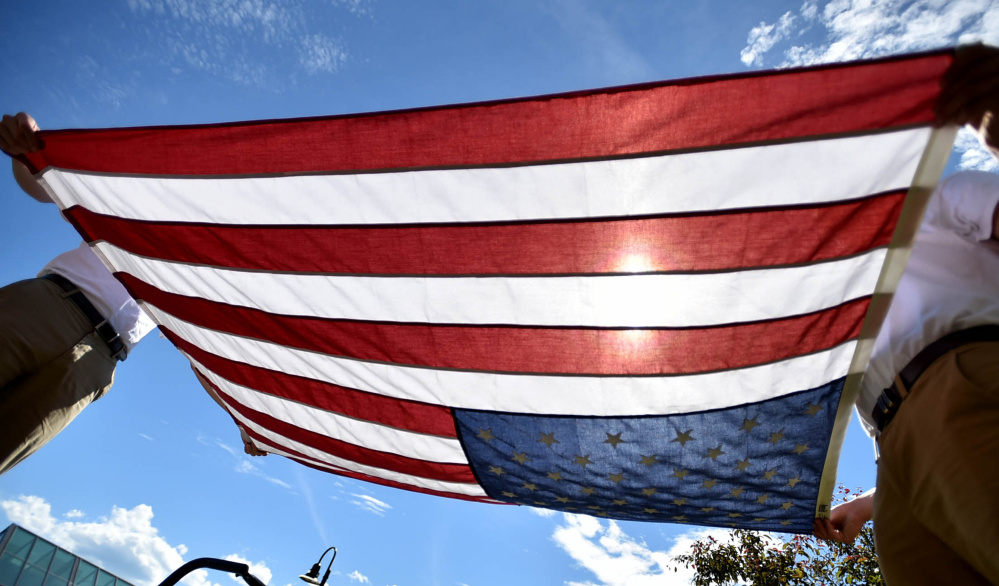WATERVILLE — Thomas College is more than 600 miles from Washington, D.C., and just about 20 miles from the Maine State House. But from this past Sunday to Thursday, Thomas was the home of a different kind of government.
The 70th session of Dirigo Boys State was held this week at Thomas College, an opportunity for young men across the state who are high school juniors to learn about and participate in local government. Part of a national program called Boys Nation, Boys State was started by the American Legion and continues to be sponsored by them. There is also a Girls State each year, hosted at Husson University.
Usually around 200 boys participate in the camp each year, though that number was down to about 170 this year because of how late many schools’ schedules ended this year. Cole Lundquist, activities director for the program, who also attended the program as a participant, said Boys State helps to get teens involved at an early age with civic engagement and “put them in the drivers seat” of local government.
“It’s ready, set, go,” Lundquist said.
During their time at the college, Lundquist said, the boys essentially run a mock government, dividing into a two-party system of federalists and nationalists. From there, the boys nominated gubernatorial candidates to run in a primary, as well as Senate and House of Representatives candidates. They hold elections for a governor, House and Senate, with a speaker of the House and majority and minority leaders, and seven are appointed to Supreme Judicial Court. At the end of the week, two are appointed to represent Maine in Washington, D.C., as delegates to Boys Nation. Lundquist said during their stay at Thomas, the boys were able to hear a variety of speakers, including Gov. Paul LePage, state legislators such as House Speaker Sarah Gideon, and Maine Secretary of State Matthew Dunlap.
“We want to expose them to their current leaders,” Lundquist said.
Once in their governmental roles, the boys are in charge of running things. They craft a state budget, they pass legislation, they work together and debate issues. There are governor’s sessions with his advisors. There are congressional meetings for the House and Senate. And the boys take on real topics. For example, they crafted a bill to legalize marijuana, with tax revenue being used for drug rehabilitation programs.
“They’re invested,” Lundquist said.
Lundquist said not every boy who comes in is immensely interested in politics when he starts, but they all get something out of the experience and appreciate it.
“By Wednesday we’re hands off,” Lundquist said, meaning the boys were essentially in charge of their own direction at that point.
Jared Johnson, another former participant who now works for the program, said the program means a lot not just to him, but to everyone involved. In addition to teaching students how the government works, it also teaches them to be leaders and to be true to their values.
“We need that now more than ever,” he said.
Johnson has been on the staff since 2009. He said he’s still friends with people he went through the program with as a delegate years ago. That’s another added benefit, he said. The boys come together as strangers, and within a few days they become a cohesive unit. He said he keeps coming back year after to year to help the boys and make them more interested in politics and history.
“It’s a program unlike any other,” Johnson said.
Speaking at the graduation ceremony where the Maine Warden Service presented the colors with the U.S. and Maine flags on Thursday afternoon, Jackson Peck, who was elected as the 70th governor of the program, told a gymnasium filled with family members that they had learned a lot in their few days at Thomas College. He spoke of how they had heard from LePage and others, and each boy in the gymnasium had expressed “sheer respect” to all the speakers.
“It sparked interesting and educational conversations,” Peck said.
Peck spoke of some the laws they had worked to pass in their mock government, including a tax reduction for companies hiring veterans and a raise in fines for offenders charged with operating under the influence.
“This program has changed lives,” Peck said.
Randy Kluj, American Legion state commander, said that the boys in the program wouldn’t have been there if not for someone igniting a spark in their lives. He said he hoped the program they had participated in would sustain that spark and they would remain interested and engaged.
“Our generation has challenges, but our future burns brightly,” Kluj said.
Colin Ellis — 861-9253
cellis@centralmaine.com
Twitter: @colinoellis
Send questions/comments to the editors.


